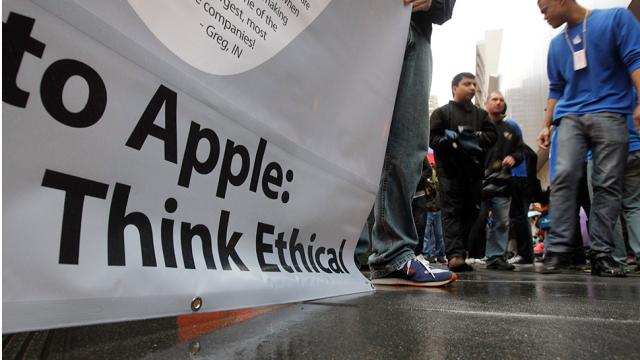Bloomberg Businessweek has an in-depth report today alleging that electronics supplier Flextronics used recruiters who charged workers exorbitant fees to place them in Malaysian plants, confiscating their passports and deserting them in employee housing without food when production idled.
The full story is a must-read, but this is the basic timeline: Apple contracted Flextronics International to make the camera for the iPhone 5. This launched a hiring spree that worked through an unsavoury but all-too-common mechanism. Bloomberg Businessweek explains:
Companies tap an informal, largely unregulated, and transnational network of thousands of recruiters. They fan out, often hiring subrecruiters, into the farm fields and impoverished cities of Indonesia, Cambodia, Myanmar, Vietnam, and even into the Himalayas in Nepal. The positions they’re trying to fill are so coveted that they’re not merely offered, they’re sold. The brokers take fees from families, representing as much as a year or more of wages; frequently the fees are paid with loans that can take years to pay off.
The allegations spiral from there. When Apple halted its Flextronics order due to a high defect rate, employees were left unpaid, undocumented and without food in company housing for months. It was only when Malaysian authorities intervened that most could even return home. The full Bloomberg Businessweek report ends with Flextronics and Apple vowing to reimburse employees who paid exorbitant fees and put stricter rules in place to prevent future abuses.
It’s only fair to point out that Apple is but one Flextronics customer — Microsoft, Ford Motor Company, Lenovo, Hewlett-Packard and Cisco also work with the company. As reprehensible as these working conditions are, it seems they most often become known when Apple’s name is involved. That’s perhaps unfair to Apple — which does plenty to help improve supply chain conditions around the world — but much more importantly it’s a disservice to the goal of fighting worker exploitation.
Personal electronics, and the global supply chain that produces them, is still a somewhat new business. Figuring out how to get the products people want, at a price they’re willing to pay, while treating factory workers like human beings, will be the greatest challenge the industry faces. We need to pay more attention — and not just when Apple is in the headlines. [Bloomberg Businessweek via AppleInsider]
Picture: AP / Paul Sakuma
